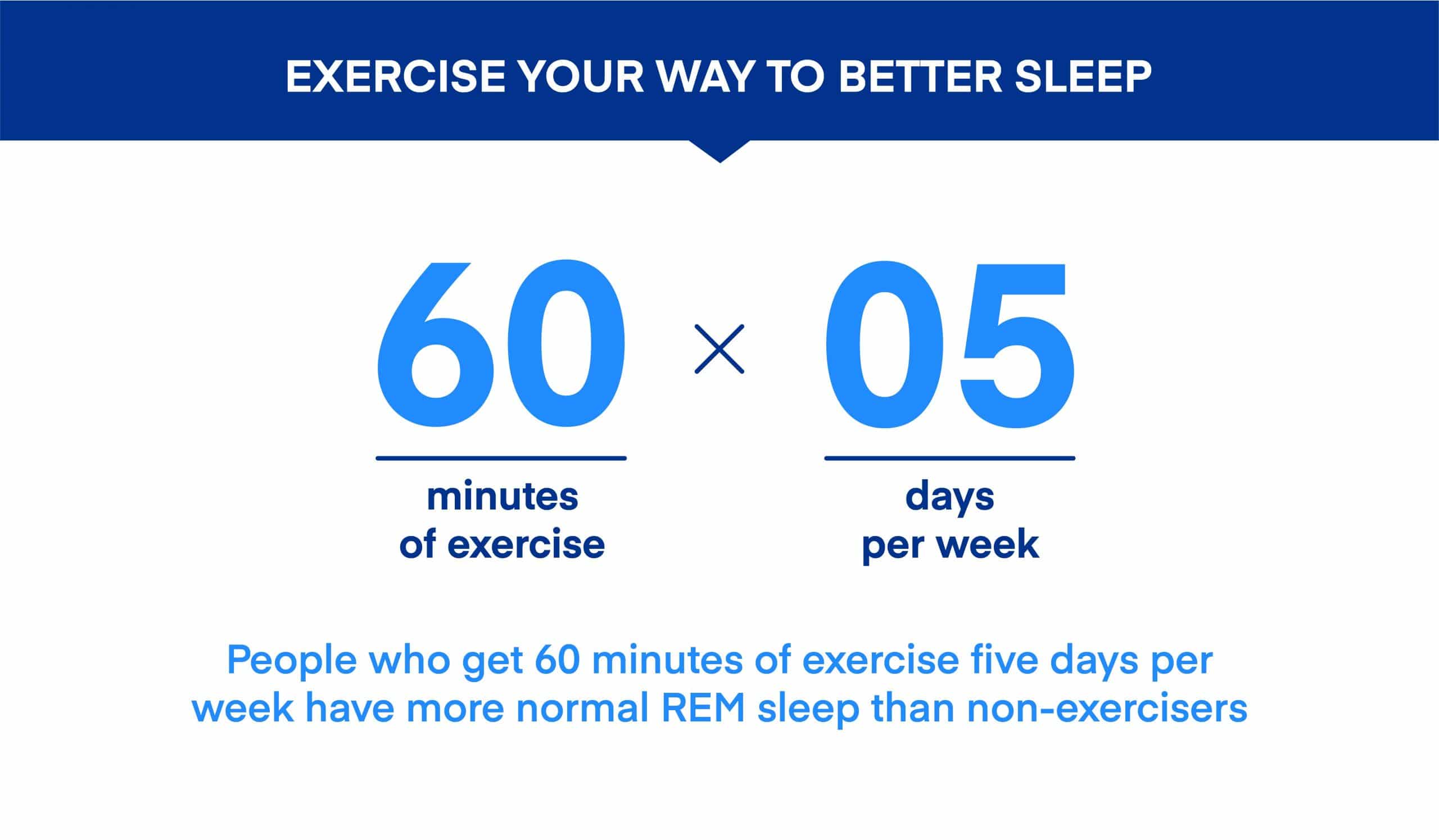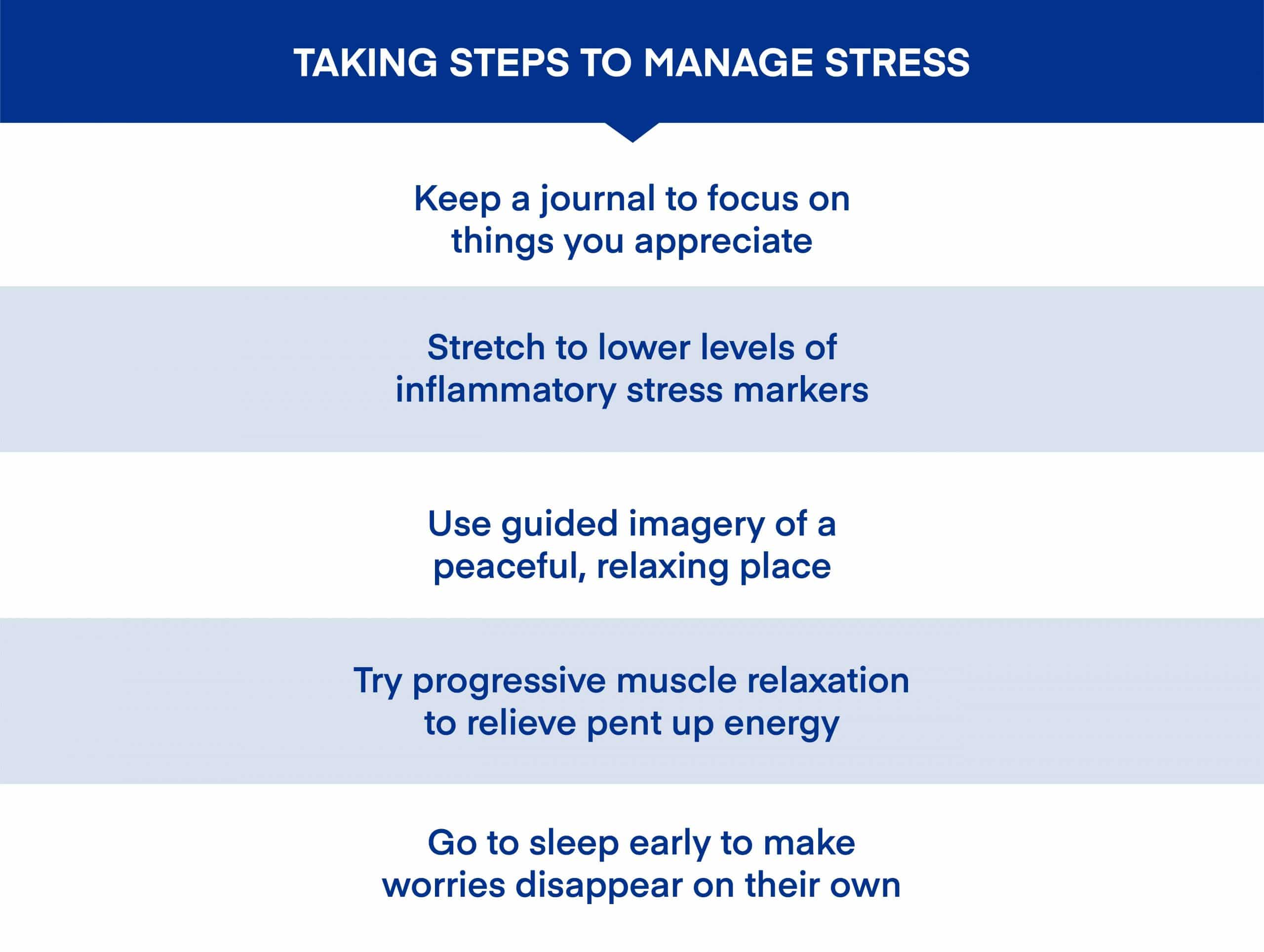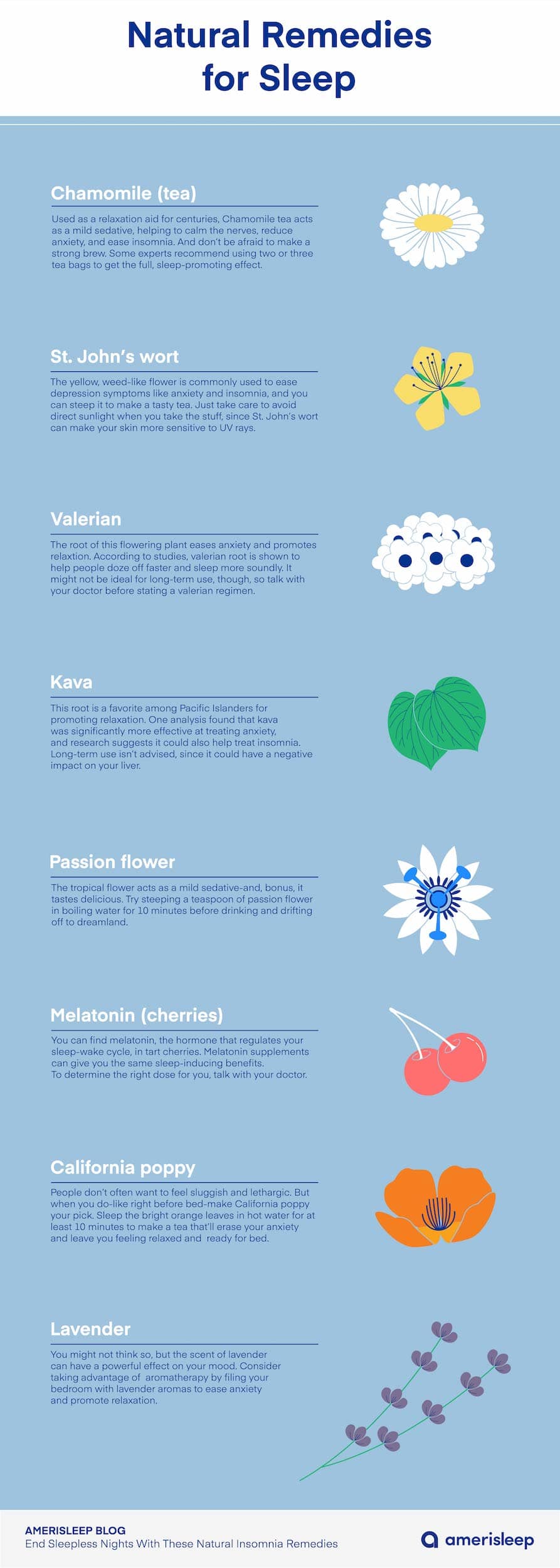Key Takeaways
- Address the Root Causes: Insomnia can stem from various factors, including stress, health conditions, poor sleep habits, or the use of certain medications. Identifying and addressing the underlying causes, such as managing stress, maintaining a healthy lifestyle, and creating a comfortable sleep environment, can contribute to better long-term sleep quality.
- Emphasize Healthy Sleep Hygiene: Establishing healthy sleep habits and lifestyle changes, including regular exercise, exposure to natural light, stress management techniques, and a balanced diet, can significantly improve sleep quality. Creating a comfortable sleep environment, regulating temperature and light, and choosing suitable bedding and mattresses also play a crucial role in promoting restful sleep.
- Consider Natural Remedies and Professional Consultation: While some herbal remedies may help promote relaxation and improve sleep quality, consult a healthcare professional before incorporating any supplements or natural remedies into your routine. If insomnia persists despite lifestyle changes and natural remedies, a doctor is crucial to identify any underlying health issues and explore appropriate treatment.
We’re all familiar with that silly image of the person who resorts to counting sheep when they just can’t seem to fall asleep. But when you’re the one who’s been tossing and turning all night, insomnia is no laughing matter.
As many as one in four adults report suffering from mild insomnia, found a recent Harvard study. Verified Source Harvard Health Blog run by Harvard Medical School offering in-depth guides to better health and articles on medical breakthroughs. View source That inability to fall and stay asleep could stem from a short-term issue, or be the result of a lifetime of poor sleep habits. Either way, it can’t be fixed with something like sleeping pills.
Here’s why insomnia happens, why you can’t rely on prescription meds to solve the problem, and how to develop healthier sleep habits for a lifetime of quality snoozing.
Why Insomnia Happens
Insomnia can be temporary—or it can be long-term. But regardless of how long you have to deal with it for, it’s never fun.
At some point or another, most of us will experience a short, unpleasant bout of insomnia. Often, it’s the result of stress or a change in routine (like a new work schedule or having a baby), or medications that mess with sleep like antidepressants, blood pressure meds, allergy meds, and corticosteroids. The good news is that usually, once you find a way to deal with the situation, your sleep pattern will get back to normal.
But other times, insomnia can become a long-term thing. Sometimes, that can happen as the result of a more serious health condition, like depression, anxiety, or sleep apnea. Other times, insomnia can stem from crappy sleep habits, like eating too many heavy snacks before bed, sleeping in an uncomfortable environment, or staying glued to your smartphone or tablet all night long.
Either way, missing out on sleep leaves you feeling exhausted, irritable, and generally unable to function during the day. And over time, it can put you at risk for health issues like obesity, high blood pressure, heart disease, and diabetes.
But no matter how long your insomnia lasts for, there’s usually a way to deal with the root of the problem and start sleeping better. And fortunately, there are plenty of options to consider.
Why You Should Steer Clear of Sleep Meds
Sleeping pills and other sleep-promoting pharmaceuticals can offer a short-term solution to a temporary bout of insomnia. And plenty of people use them. But often, prescription sleep aids come with unpleasant side effects like headaches, sore muscles, constipation, dry mouth, daytime fatigue, trouble concentrating, dizziness, and more. Add them all up, and they’re about as bad—if not worse–than your garden variety sleep deprivation.
Still, even if you’re one of the lucky few who don’t experience side effects from taking sleeping pills, you likely won’t benefit for long. Most people quickly build up a tolerance to the sedative effects of sleeping meds. This either means that you have to take higher and higher doses to get the same effect, or they stop working altogether.
Taking sleeping pills is a lot like crash dieting. Sure, both might work in the short term. But if you want to up your odds of achieving longer, more restful sleep for a lifetime, you’ve really got to build healthy, pro-sleep habits.
Either way, it doesn’t add up to a healthy sustainable solution. Taking sleeping pills is a lot like crash dieting. Sure, both might work in the short term. But if you want to up your odds of achieving longer, more restful sleep for a lifetime, you’ve really got to build healthy, pro-sleep habits.
Fortunately, doing that is easier than you might think. Below, we’ll take a look at the multitude of lifestyle changes—both big and small—that you can make to help you sleep better. We’ll also explore proven herbal remedies that can give you a relaxation boost when you really need it, minus the side effects that tend to come with prescription meds.
Making Time for Exercise
In case you missed the memo, being physically active is essential for sleeping well. Mounting evidence shows that people who exercise regularly tend to snooze better than their couch potato counterparts—especially when it comes to those with chronic insomnia.
Not convinced? Consider this. One study Verified Source National Library of Medicine (NIH) World’s largest medical library, making biomedical data and information more accessible. View source concluded that people who get 60 minutes of exercise five days per week have more normal REM sleep than non-exercisers. But you might not need to sweat it out for quite that long to reap the benefits. Other findings show that insomniacs who engage in thirty-minute spurts of exercise just three or four times a week sleep for nearly an hour longer than sedentary folks and wake up less frequently during the night.

And if you can swing it, working out in the morning might be even more beneficial, according to one recent study. Experts can’t say why, exactly, it could have something to do with morning exercise’s ability to help regulate the secretion hormones that help manage blood pressure, which may lead to better sleep.
Why is working out seemingly so beneficial? The mechanisms aren’t entirely known, but National Sleep Foundation experts say that it could have to do with exercise’s ability to promote feelings of relaxation and reduce feelings of stress, anxiety, and depression. Staying active might also help to keep your body’s natural sleep-wake cycle in sync—particularly if you do it outside (more on that below).
Still, the explanation might be even simpler: Think about the days when you’re running around all day, or after you’ve wrapped up a really tough workout. Don’t you just feel more tired on those days compared to the ones where you just lay around all day and do nothing? Thought so.
Using Sunlight to Promote Healthy Melatonin Production
The sun might force you awake in the morning, but it’s also essential for helping you achieve restful sleep at night. That’s because your body relies on natural light to figure out what time it is, and determine whether to pump out energizing hormones or ones that leave you feeling relaxed and sleepy, like melatonin.
In other words, daylight helps your body’s natural clock—which is dictated by the 24-hour cycle of day and night—know when to feel awake and when to feel tired. “When our pineal gland is triggered by light, especially sunlight, it sends signals and releases wake-promoting hormones,” says Michele Roberge, RT(R), RPSGT, a neurodiagnostic lead technologist at Parrish Sleep Disorder Center. “A simple walk to the mailbox every morning could really benefit someone who is suffering from insomnia.”
When your hypothalamus—the gland responsible for regulating sleep and energy levels—senses a change in light, it tells your body to ramp up or ramp down its production of the sleep hormone melatonin. During the day, you feel energized and alert because you don’t produce much melatonin. At night, you produce more, so you feel sleepy.
One way to keep everything on schedule is by flooding your body with light as soon as you get out of bed, which sends a clear message to your body that it’s time to wake up. Try opening your blinds, exercising outside, or even going sans sunglasses on your way to work.
And throughout the day, keep the natural light flowing. Sit near a window at work, or hang out outside during your lunch break. (Doing so could help you sleep for nearly an hour longer, suggests one recent study.) On the weekends, plan a picnic or take a hike instead of watching Netflix and chilling on the couch all afternoon.
Taking Steps to Manage Stress
If you consistently find yourself lying in bed with your mind racing, stress could be stealing your ability to fall asleep quickly. In fact, nearly 40% of Americans say that they often feel tired or fatigued because of stress, according to a 2013 American Psychological Association poll. Verified Source American Academy of Pediatrics (AAP) Professional society for pediatricians that aims to improve children’s health everywhere. View source
Nearly 40% of Americans say that they often feel tired or fatigued because of stress.
And it gets worse. When you’re wiped out during the day from not getting enough sleep, you tend to feel even more stressed, anxious, and irritable. Over time, the whole stress-sleep thing can turn into a vicious cycle. Which is why taking steps to manage your stress is so critical for achieving deeper, more restful sleep.
So should you start sitting cross-legged and singing Kumbaya before bed? Well, sure, if you want to. But if that’s not your style, don’t worry. There are plenty of other effective ways to ease feelings of stress and promote feelings of relaxation. A few to try:
- Journaling. You might think that writing stuff down would make you dwell on it. But when you focus on the things that you appreciate, you might actually sleep better. One recent study, Verified Source Wiley Multinational publishing company specializing in academic and instructional materials. View source published in Applied Psychology, found that students who wrote in a gratitude journal for just 15 minutes per night worried less at bedtime—and achieved better sleep.
- Guided imagery. Experts say that mind games like guided imagery can help you doze off faster. And it couldn’t be simpler: While you’re lying down, picture yourself in a relaxing, peaceful place. Over time the image becomes a sort of signal to your brain that it’s time to nod off.
- Progressive muscle relaxation. Because relaxing your physical body can be just as effective as relaxing your mind. Try repeatedly tensing and releasing your toes to the count of 10, recommend experts at the University of Maryland Medical Center, Sleep Disorders Center. It’s crazy simple, but it can actually help relieve pent up energy and help you feel more relaxed.
- Going to sleep early. It sounds counterintuitive, but trying to turn in earlier might make your worries sort of disappear on their own. Compared to people who go to sleep early, those who stay up late are more likely to be overwhelmed by repetitive negative thoughts, found one study published late last year.

Eating Pro-Sleep Foods—and Avoiding Sleep Stealers
It might seem surprising, but the things that you eat and drink could play a role in whether you drift off to sleep soundly or spend half the night tossing and turning. In fact, many edibles actually contain chemical properties that can make you feel relaxed or drowsy. Timing is also important, as you want to avoid eating before bed.
To help fight insomnia, consider adding some of these foods to your dinner menu or noshing on them for a nighttime snack.
- Cheese. Like your Thanksgiving turkey, cheese is rich in tryptophan. Tryptophan is an amino acid that’s needed to produce the neurotransmitter serotonin, which your body needs in order to feel relaxed and sleepy.
- Almonds. The crunchy nuts, too, contain plenty of grog-inducing tryptophan. But that’s not all. Almonds are a good source of both calcium and magnesium, two minerals that experts say are important for achieving quality sleep.
- Salmon. You’ll snooze better if your body has adequate levels of the omega-3 fatty acid DHA, found one British study Verified Source Wiley Multinational publishing company specializing in academic and instructional materials. View source published in the Journal of Sleep Research. Of course, other omega-3-rich fish like tuna, sardines, or mackerel can get the job done, too.
- Whole-grain crackers. It’s not just a coincidence that you immediately want to take a nap after chowing down on a carb-heavy meal. Carbs cause your body’s blood sugar levels to spike, which appears to play a role in regulating your body’s sleep-wake clock, suggests a recent Japanese study. Still, you’ll probably get a stomachache and end up tossing and turning all night—by devouring a gigantic bowl of pasta. So pick a lighter option, like a handful of whole-grain crackers.
- Cherries. They’re the only edible source of the sleep hormone melatonin, so consider having a bowlful for dessert. If they’re not in season, opt for thawed frozen cherries or a glass of tart cherry juice. Drinking two glasses daily helped people with insomnia sleep for 90 more minutes, found one study published in the Journal of the Federation of American Societies for Experimental Biology.
- Low-fat milk. If uncomfortable heartburn keeps you up at night, try a glass of moo juice. The combo of high protein and low carbs can keep acid reflux at bay. Plus, it’s a good source of calcium, which helps keep your body’s melatonin production in check.
- Bananas. The yellow fruits have everything going for them. They’re rich in sleep-promoting carbohydrates and tryptophan, but that’s not all. Bananas also contain potassium and magnesium, which can help promote muscle relaxation.
But eating the right stuff isn’t the only way that food impacts your sleep, though. Steering clear of the wrong edibles and drinkables is equally important. A few to avoid eating before bed in the name of getting a better night’s rest:
- Coffee and other caffeine-rich stuff. It might go without saying, but we’re going to say it anyway. Coffee can stay in your system for as long as six hours—which means that even a late afternoon cup could have an impact on your sleep. If you’re aiming to get to bed by 11, avoid coffee and other high-caffeine things like black tea, cola, and dark chocolate after 5 PM.
- Spicy foods. Can’t get enough sriracha? Save it for lunchtime. One International Journal of Psychophysiology study Verified Source National Library of Medicine (NIH) World’s largest medical library, making biomedical data and information more accessible. View source found that when people who consumed hot condiments (like Tabasco sauce or mustard) before bed took longer to fall asleep and achieved less restful sleep compared to when they skip the stuff. Researchers aren’t totally sure why spicy foods mess with your sleep, but it could be because they raise your body temperature.
- Fatty foods. People who eat high-fat fare tend to be more sleep-deprived compared to those who eat less of the stuff, says the National Sleep Foundation study. Verified Source National Sleep Foundation. Nonprofit focused on educating about sleep health. View source That could be because heavy, greasy food is harder on your digestive system, and is more likely to cause sleep-stealing stomach discomfort.
Make Sleep-Friendly Lifestyle Changes
You’re exercising, getting plenty of exposure to natural light, and are eating better. It all adds up to good stuff, sleep-wise, but there are other lifestyle changes you could be making to snooze more soundly. A few to consider:
- Powering down in the evening. The blue light emitted from your smartphone, tablet, or computer is sort of like an electronic version of caffeine: It leaves your brain feeling revved up, rather than relaxed and ready for sleep. Make it a point to turn off your devices at least an hour before turning in.
- Showering at night instead of in the morning. The heat from a warm, pre-bedtime shower sends the message to your nervous system that it’s time to relax and slow down. In other words, showering before bed encourages you to feel sleepy. Which seems way more useful at night than first thing when you wake up, right?
- Sniffing lavender before bed. You might not think so, but scent can have a powerful effect on your mood. Consider taking advantage of aromatherapy to fill your bedroom with aromas that are thought to ease anxiety and promote relaxation, like lavender, spikenard, vetiver, frankincense, myrrh, and clary sage.
- Curl up under a weighted blanket. While many sleep with a weighted blanket, you might even find it beneficial to use your weighted blanket in the evening hours, helping you relax better before bed. The benefits of a weighted blanket can extend beyond nighttime use, after all.
Finally, don’t discount the powerful effect of a super comfortable bedroom. If you’ve ever spent a night tossing and turning because of a too-hot room or wonky mattress, you know that feeling uncomfortable can make it almost impossible to fall—and stay—asleep. (And if you already suffer from chronic pain, the whole problem becomes even worse.)
To make your bedroom as pro-snooze as possible, consider making these changes:
- Turn down the temp. Most experts agree that the ideal temperature for sleep is somewhere between 60 and 72 degrees. Experiment with the thermostat to see what’s right for you.
- Turn off the lights. Exposure to artificial light when you’re trying to sleep isn’t just annoying—it suppresses your body’s production of the sleep hormone melatonin. Use blackout curtains, put black tape over your clock or stereo system, or wear an eye mask if you have to.
- Turn down the noise. Unless you live alone (and sometimes, even then) it can be hard to ensure that your living space will be quiet when you try to go to sleep. Wear earplugs if you have to, or consider investing in a white noise machine to block distracting sounds.
- Pick comfortable bedding. No one wants to wake up in the middle of the night in a pool of their own sweat. Stick with bedding made from natural fibers like cotton, wool, silk, bamboo, and linen. Avoid synthetic fabrics like polyester that trap heat and moisture. You might even want to consider a weighted blanket for an extra hug-like feel.
- And a comfortable mattress. If your mattress is more than seven years old, it could be worn out—and costing you a better night’s sleep. If you don’t have the best mattress or your bed shows signs of wear (like deep impressions) or you consistently wake up sore in the morning, it might be time to think about investing in a new sleep surface. Shameless plug: take a look at our selection of mattresses if you’re in the market!
Natural Remedies for Sleep
If conventional sleep meds might be bad for you, does that mean all-natural herbal ones are a better choice? Sure, there’s evidence that they can be. But they’re not a substitute for practicing good sleep hygiene. Instead, think of them as potential tools to make your smart sleep habits work even harder.
(However, just because a remedy is natural doesn’t automatically mean that it’s healthy or effective. While these herbal options are generally considered to be safe, you should always get the green light from your doctor before taking any new supplements or natural remedies.)
OK, glad we got that out of the way. Here are some sleep-promoting herbal remedies that could make it easier for you to nod off:
- Chamomile tea. Simple, delicious, and effective. Chamomile tea has been used as a relaxation aid for centuries, but it’s more than just a folk remedy. One review Verified Source National Library of Medicine (NIH) World’s largest medical library, making biomedical data and information more accessible. View source found that the stuff acts as a mild sedative, helping to calm the nerves, reduce anxiety, and ease insomnia. And don’t be afraid to make a strong brew. Some experts recommend using two or three tea bags to get the full, sleep-promoting effect.
- St. John’s wort. The yellow, weed-like flower is commonly used to ease depression symptoms like anxiety and insomnia, and you can steep it to make a tasty tea. Just take care to avoid direct sunlight when you take the stuff, since St. John’s wort can make your skin more sensitive to UV rays.
- Valerian. Like chamomile tea, folk practitioners have turned to the root of this flowering plant to easy anxiety and promote relaxation. And it works: According to a review of sixteen studies, valerian root is shown to help people doze off faster and sleep more soundly. It might not be ideal for long-term use, though, so talk with your doctor before starting a valerian regimen.
- Passionflower. The tropical flower acts as a mild sedative—and, bonus, it tastes delicious. Try steeping a teaspoon of passionflower in boiling water for 10 minutes before drinking—and drifting off to dreamland.
- California poppy. People don’t often want to feel sluggish and lethargic. But when you do—like right before bed—make California poppy your pick. Steep the bright orange leaves in hot water for at least 10 minutes to make a tea that’ll erase your anxiety and leave you feeling relaxed and ready for bed.

Consider Meeting With Your Doctor
If you’ve tried natural remedy after natural remedy and are still having difficulty sleeping, it’s a good idea to talk about your insomnia with your doctor. Together, you can discuss your symptoms, which could point to underlying health issues that might be making it harder for you to fall asleep. She can also review any prescriptions that you’re taking to see whether they might be interfering with your ability to nod off.
Have you found a way to manage your insomnia?
About the author
Marygrace Taylor is an award-winning health writer for Amerisleep. Her commitment to sleep health is evident in her ability to consistently prioritize eight hours of sleep each night. Her in-depth interviews with industry experts, such as Ken Ceder on "Why Light is Essential for Great Sleep and Optimum Health," highlight her dedication to delivering valuable insights. Marygrace's work has been featured in reputable publications like Business Insider, Glamour, Refinery29, Metro UK, and Hunker, further solidifying her expertise in the field.
View all posts





